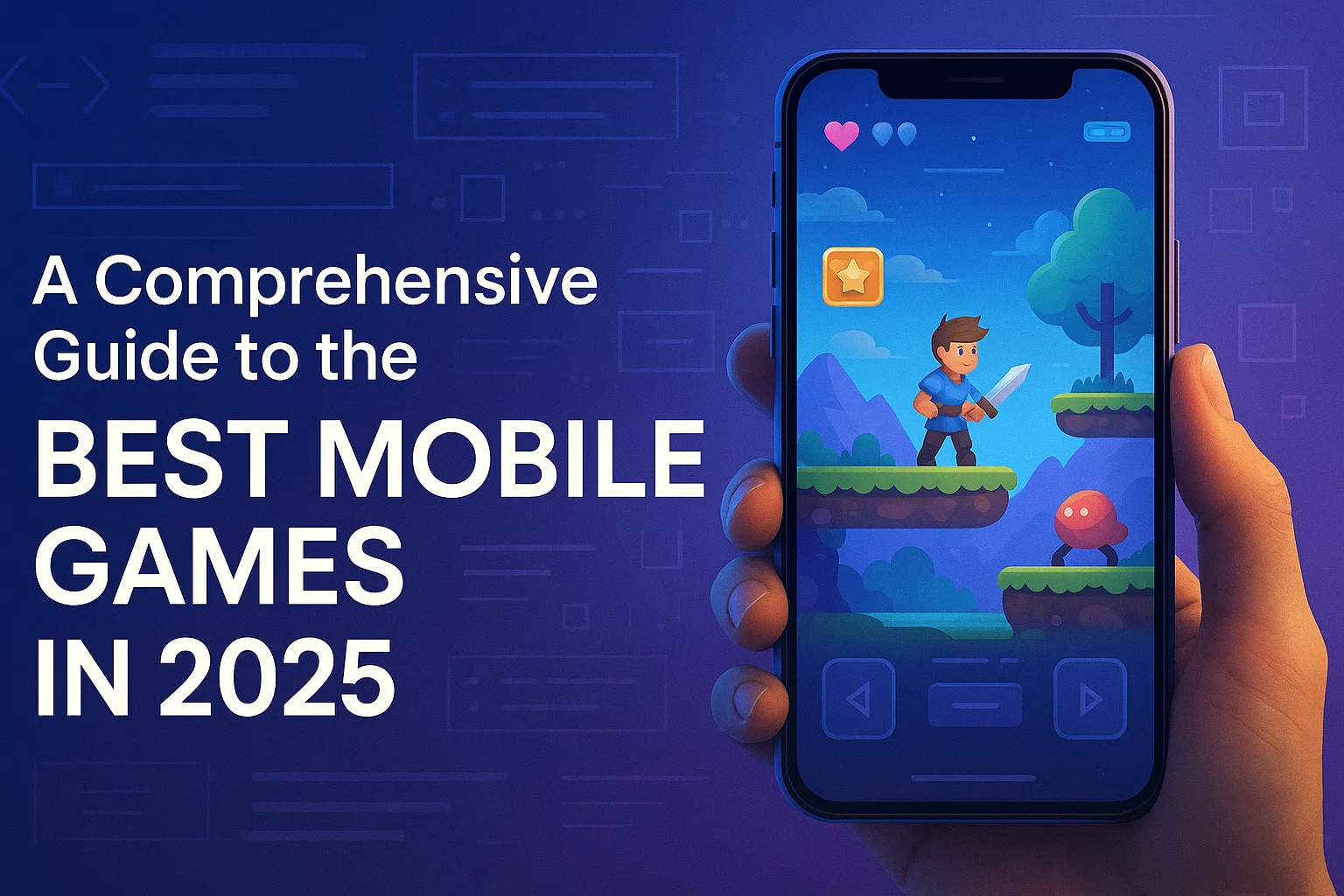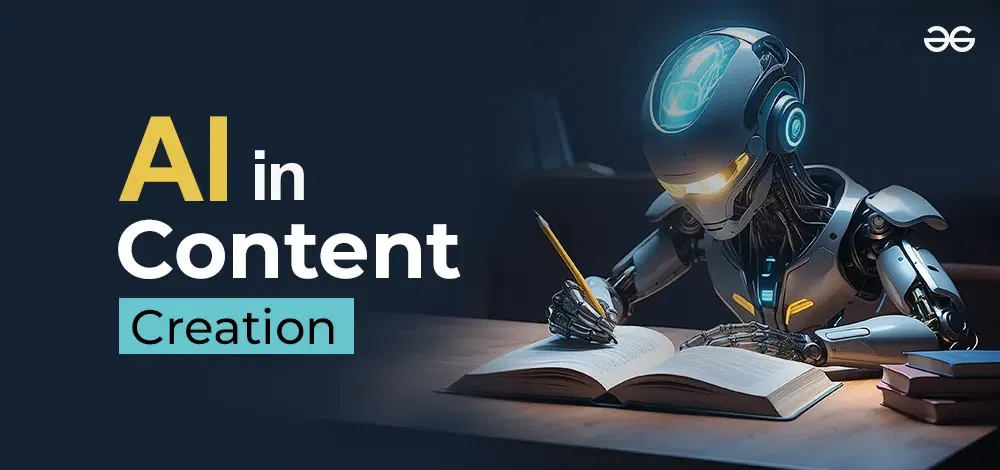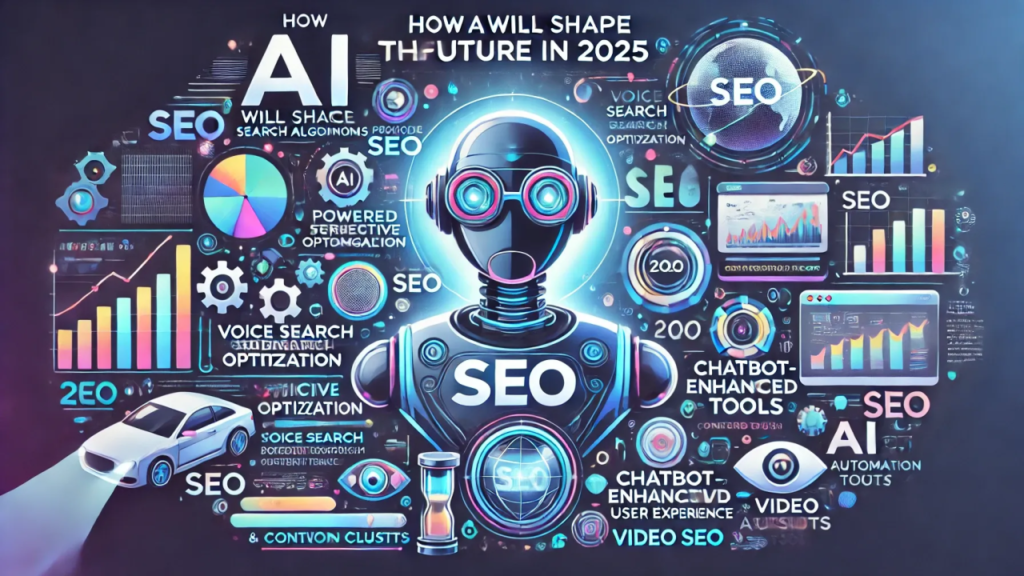
How AI Will Impact SEO

Two areas will be considered in looking at the generative AI impact on Search Engine Optimization (SEO). One area is how the generative AI-created content impacts your site and the other area is how search algorithms (and search result pages, or SERPs) use generative AI. As a marketer, you might be thinking questions: Will the AI-generated content harm our ranking? Are the search engines going to favor the direct AI responses over our content? How do we optimize for the AI search? In this article, we’ll answer these issues, clarify some prevalent misconceptions, and identify possible SEO concerns as AI evolves.
Two areas will be considered in looking at the generative AI impact on Search Engine Optimization (SEO). One area is how the generative AI-created content impacts your site and the other area is how search algorithms (and search result pages, or SERPs) use generative AI.
As a marketer, you might be thinking questions: Will the AI-generated content harm our ranking? Are the search engines going to favor the direct AI responses over our content? How do we optimize for the AI search? In this article, we’ll answer these issues, clarify some prevalent misconceptions, and identify possible SEO concerns as AI evolves.
Importance of SEO in Digital Marketing
SEO attracts customers through quality content. Without quality content, a search engine won’t understand what this particular webpage is about, nor how it could connect this webpage with the right users. That makes content all-important toward the visibility and success of a website.
Ranking to algorithms by search engines, such as Google, is how they rank, but knowing how the algorithm changes over time becomes the key since it shows how to upgrade ranking on a website. Quality content remains the backbone of SEO while search engines prefer helpful content that satisfies the needs of a user.
This is through keywords where search engines link users’ queries to online content. Results are delivered based on a set of factors like user intent, location among other demographic details. But now the question remains if AI-generated content can keep on with the pace of the changing algorithms.
AI-generated content refers to whatever type of material-that is, blog posts, product descriptions, videos, and articles-created by the machines in response to some human queries. While AI may quickly deliver the copy, there are always limitations to such produced output, and its full relevance will usually require additional input from a human. It needs processing with further touches to ensure it works well on search engines.

The Rise of AI in Content Creation
Traditionally, SEO content was written fully by humans. Blog posts, articles, product descriptions, and many more were carefully developed to contain a specified keyword and user intent. However, with the emergence of AI tools, the course of content writing has changed dramatically. AI platforms can now create text, videos, and even audio based on human input and data from various sources.
This development has led to a discussion in the SEO and digital marketing communities: should organizations embrace AI-generated content, or is human-written content still preferred? To answer this question, consider the advantages and disadvantages of AI-generated material.

Benefits of AI-generated content in SEO
AI-generated content offers a number of benefits that place it as an attractive choice by companies looking to facilitate their process of content creation. Some major benefits include:
1. Cost-Effective
One of the most significant advantages of AI in terms of SEO is that it is cheap. For instance, getting a professional writer can be expensive, particularly with technical or lengthy content. AI content generators, on the other hand, can often be acquired for no cost or for a few dollars, so businesses can create an enormous amount of SEO content without spending a lot of money.
2. Efficiency and Scalability
AI-generated content may create hundreds of pieces in a matter of minutes, when a human writer might need days or weeks to finish the same work. It makes AI an incredibly efficient solution for businesses where scaling up their content production is paramount. Blog posts, product descriptions, social media updates-there is no end to which formats AI can produce SEO-optimized content in.
3. Help with writer’s block
One of the most difficult obstacles for writers is hitting a creative wall, where ideas stop flowing and output stops. In such times, AI tools are an immensely useful source of ideas, presenting content and outlines as well as full sections that can be drafted upon. This can really help a writer break through the back of creative stagnation and ensure that the content creation process never slows up.
4. Improved Capabilities for SEO
Despite general concerns about the AI-generated content, it is evident that AI tools are, in reality, very efficient in terms of SEO. It can research topics, find relevant keywords and produce higher quality content optimized for a search engine. Many of the AI-generated articles come above their human-written counterparts in search results.
Disadvantages of SEO in AI-written content:
While AI-generated content has many advantages, it is not without restrictions. Understanding these disadvantages is critical for businesses that want to combine AI with human creativity and knowledge.
1. Plagiarism and Low-Quality Content
One of the risks of using AI tools is that most information is pulled from a narrow band of sources, thus increasing the chance of plagiarism. In fact, plagiarized content ranks less on search engines like Google, so it really hurts your site’s ranking. Above all, generated content would not possess the characteristics of originality and flow that make for a smooth reading experience and do not align with SEO best practices.
2. Algorithms Penalty Risk
Content will be valued if it is relevant and useful for the readers. Sometimes AI-generated content might be too dense, irrelevant, or very low in relevance. Users are likely to leave the page with high bounce rates, which makes the search engine algorithms penalize the content by making its search result visibility minimal.
3. Lack of Creativity and Engagement
In fact, one of the biggest and most obvious limitations of AI tools is that they cannot produce engaging or truly creative content. A human writer can add feelings, personality, and a unique perspective to his work, which further generates a connection between the readers and the writer that an AI just can never bring to reality. This similarity can make the content seem dry and uninspired which may turn readers away
4. Human Editing is Essential
Even the most powerful AI programs require human participation to improve their content. AI-generated writing frequently contains contradicting claims or factual errors, which must be addressed before publishing. Furthermore, AI might struggle to keep a consistent tone , requiring human editing to guarantee the end result is polished and professional.
5. Lacks Ability to Generate Original Ideas
The current AI content generators work with the reliance of existing data therefore can’t really generate new or authentic ideas or material. This is indeed one of the major challenges that a business faces when it decides to use AI to create trending or innovative content to stay ahead of competition. AI can do some SEO basics but fails in the creation of cutting edge or thought leadership material.
Humanizing AI-Generated Content: Best Practices
Despite its limits, AI-generated content is getting more popular. In fact, several organizations are currently using AI technologies to generate content at scale. To get the most out of AI-generated content, organizations should prioritize humanizing the product. Here are some best practices to guarantee that AI-generated content engages with readers and ranks highly in search results:
1. Eliminate Overused Phrases
AI-based tools tend to use many expressions such as “moreover,” “in conclusion,” or “in summary.” These are technically correct expressions but would make your content sound more repetitive and robotic. Replace these phrases with more natural transitional phrases that can better flow with the rest of the article to humanize AI-generated content.
2. Concentrate on Active Voice
AI-generated material frequently uses passive words, which might make the writing less interesting. Use active voice wherever feasible, since it provides a more dynamic and direct reading experience. Active voice also clarifies the topic and action in each phrase, making it easier to understand.
3. Provide a Personal Touch
Search engines favor informative and engaging content. Some simple ways to humanize AI generated content are adding personal anecdotes, using first-person pronouns and conversational language. It makes the content relatable and forms a connection with the readers.
4. Check the facts
While artificial intelligence may create content quickly, they frequently lack the capacity to check facts or deliver the most current information. Always use credible sources to fact-check AI-generated material to guarantee its accuracy and relevance. Factual accuracy is critical for establishing trust with your audience and increasing your SEO performance.
5. Edit for Tone and Consistency
AI tools often fail to sustain a particular tone or narration throughout the flow of content. Where possible, take some time after generating content to refine the tone in the sense of ensuring it falls into place with the brand voice. Your brand may be formal, conversational, or somewhere in the middle. Ensure that all content reflects this.

Future of AI in SEO: A Balanced Approach
AI transforms the SEO world by providing businesses with a scalable way of creating content in a highly effective yet time-saving manner. However, it is possible to forget that AI-constructed content is still limited, especially at the level of creativity, engagement, and originality. A balanced strategy is necessary for businesses to remain competitive in the digital world.
It will be a merging of the efficiency that AI tools bring with the creativity and critical thinking of the human writers which eventually will make businesses enjoy superior content that’s not only optimally search engine-friendly but also reader-friendly. Those who incorporate their adaptation and furtherance into AI-generated content will be in a better position for long-term success.
Here’s a simple table that summarizes the impact of AI on SEO:
| Aspect of SEO | Positive Impact of AI | Negative Impact of AI |
| Content Creation | AI tools generate, edit, and optimize content based on keywords, goals, and audience preferences. | May reduce creativity and originality in content creation. |
| Keyword Research | AI speeds up keyword research by analyzing search volume, trends, and competition. | Depending on AI could limit critical thinking and strategic insights. |
| On-Page SEO Optimization | AI automates tasks like updating meta tags, resizing images, and internal linking. | Overdependence on AI could reduce manual oversight and creativity. |
| Personalization and User Experience | AI improves user experience with personalized search results and content suggestions. | Potential for algorithmic biases, leading to unfair rankings. |
| Voice Search Optimization | AI helps optimize content for natural language and voice-based queries. | Human oversight is required to ensure relevance and context. |
| Efficiency and Time-Saving | AI automates repetitive SEO tasks, saving time for SEO professionals | Job displacement fears as AI takes over more SEO functions. |
| Algorithm Biases | AI-based algorithms help search engines understand user intent and context. | Risk of amplifying biases in search results, affecting visibility. |
| Technical SEO | AI assists with technical elements such as schema markup and mobile SEO. | AI tools may still miss nuanced technical issues needing human input. |

Conclusion
AI tools do make very good resources for content creation. They are very fast, efficient, and cost-effective. However, it’s not a replacement for a human’s creativity and expertise. Companies understand the strengths and weaknesses of AI-generated content and adopt strategies that would humanize the approach, leveraging the full potential of AI while creating useful, interesting, and SEO-friendly content for their different audiences.
The future of content creation lies in the partnership of AI and human intellect. As the digital landscape evolves, individuals who can effectively combine these two factors will succeed in the field of SEO.


